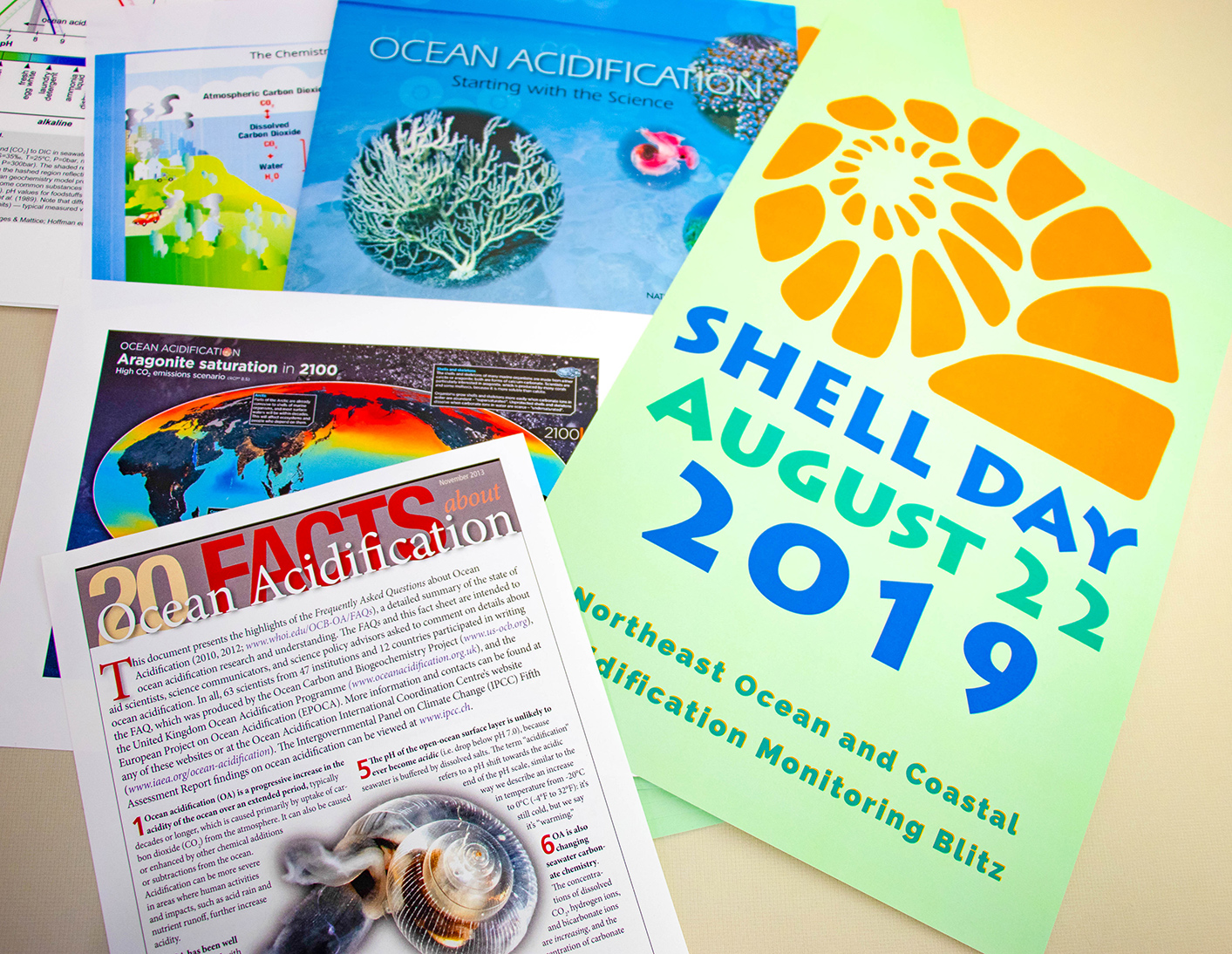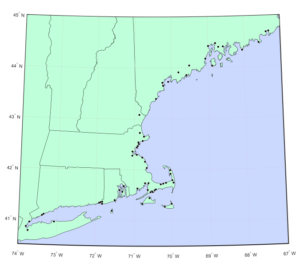
Shell Day
by Abigail Muscat

On August 22, 2019, 57 water-quality related organizations gathered along the coast from Long Island Sound to Downeast Maine for a single-day water monitoring blitz. The question: “What is the relationship between salinity and alkalinity?” Alkalinity is the ability of water to neutralize an acid, or in other words, resist pH fluctuations. In coastal regions, the effect of fluctuating pH levels is amplified and can lead to a greater reduction of pH (more acidic). However, testing the total alkalinity of a water sample involves a process that is not as readily accessible compared to determining the salinity of a sample. Thus, the objective was to determine whether salinity could be used as a proxy for total alkalinity. Over the course of the day, about 500 water samples were collected, and temperature, salinity, and pH were recorded in each location at low, mid, and high tides.
This data will allow researchers to gain a better understanding of the local vulnerability to ocean acidification and the impacts on shellfish populations. In short, the term “ocean acidification” refers to a decrease in the pH of seawater due to the absorption of CO2 from the atmosphere. The ocean is a carbon sink, meaning it naturally absorbs a high percentage of CO2,(approximately 25%); thus, an increase in atmospheric CO2 levels would cause a substantial increase in the presence of CO2 in the ocean. Shellfish are particularly affected by this issue since many shellfish have shells composed of calcium carbonate. As the pH of the seawater decreases (becomes more acidic), shellfish, such as oysters, clams, and mussels have a harder time obtaining the necessary components from the seawater to maintain the structural integrity of their shells. Along the coast, this issue is amplified by the presence of rivers (freshwater has less buffering capacity than seawater) and by nutrient runoff, which can alter the pH levels of coastal seawater.
Over the next few weeks, the 8 chemical labs that are assisting with this event will be sending out the preliminary results and opening up the analysis to all citizen scientists who are interested in assisting, in order to further engage local communities.
For more information, go online.
A team of local advisors and scientists from numerous states were involved in this project. This project, under the titles “Shell Day: Marine Monitoring Blitz” and “A Strategy for Ocean and Coastal Acidification (OCA) Education and Citizen Science Monitoring in the Northeast, was funded by Maine Sea Grant as part of the April 2019 call for Program Development Projects and by a NOAA Ocean Acidification Program grant. The principal and co-investigators for this project include Parker Gassett (University of Maine), Beth Turner (NOAA/NOS/NCCOS), Chris Hunt (University of New Hampshire), Esperanza Stancioff (University of Maine Cooperative Extension/Maine Sea Grant), and Aaron Strong (University of Maine).
